Houseboat Vs Yacht (Differences & Comparison)

August 30, 2022

For most people, a houseboat and a yacht refer to the same thing. But is that the case? This houseboat vs. yacht comparison guide has the answer.
If you are looking to spend some of your time living on the water, you can either purchase a houseboat or a yacht. After all, they are the same thing, right? Not exactly. Houseboats are yachts are two different water vessels.
A houseboat is more of a floating house. It’s specifically built for permanent residence in water. And while it can move around, most houseboats spend the majority of their time moored to a port. Yachts, on the other hand, are designed for leisurely water activities like racing and vacations.
In this houseboat vs. yacht comparison guide, we will take a closer look at how these two water vessels compare. We will explore their designs, the different types available, their floor plans, and their pricing. And by the time you finish reading this guide, you will have a clear idea of the differences between a houseboat and a yacht. Also, this guide will help you to know the right choice for your needs.
We aim to provide our readers with informative, well-researched, and trustworthy content. And this is made possible thanks to our ever-dependable team, composed of respected journalists, experienced researchers and various other experts, drawn from different specializations. So, whenever you come across any type of content piece on our site, you can rest assured that the information you are getting is credible.

Table of contents
One of the main differences between a houseboat and a yacht is their design or appearance. If you take a closer look at a houseboat, you will notice it resembles something that looks like a floating home. And this explains why it’s called a houseboat. It’s a combination of a small house and a boat, thus the name.
A yacht, on the other hand, looks like an ordinary boat. Hence, it’s almost impossible to confuse the two, in terms of appearance, since they are considerably different.
A notable difference in their appearance is the hull. Considering that different water vessels come with different types of hulls, this is also the case with these two. For a houseboat, you will notice that it has a flat bottom hull. The flat bottom hull is designed to enhance its stability in the water since it spends the majority of its time docked alongside a pier, berth, or slip.
On the other hand, yachts come with V-shaped hulls. The V-shaped hull is designed to enhance the vessel’s agility and speed. Unlike houseboats, yachts spend most of their time moving around on the water. And this explains why they come with this type of hull design.
So, if you come across a water vessel that has a flat-shaped hull, it’s highly likely you will be looking at a houseboat. On the other hand, if it has a V-shaped hull, the chances are it’s a yacht or other similar water vessels built for agility and speed.
But, it’s also worth mentioning that some high-performance boats like tournament waterski boats also have flat-bottomed hulls. This hull design is to enable them to skim smoothly on the water surface.
Similar to other water vessels, houseboats and yachts come in different types, shapes and sizes. So, if you are looking to purchase any of these two water vessels, here are the different available types.
There are two main types of houseboats. These are static or non-cruising houseboats and bluewater or cruising houseboats. Each of these two types is built for a specific purpose and utilization.
Static Houseboats
As their name suggests, static households are not built for moving around. Most of the time, they are anchored or moored to a designated spot, which may be a dock or marina. Static houseboats are the most popular out there.
Non-cruising houseboats come equipped with almost all the modern conveniences that you would find in a normal house. However, these boats like propelling mechanisms, meaning you can’t move around in them.
Cruising Houseboats
A cruising houseboat is almost similar to a static houseboat, in terms of design and furnishings. But, it comes with a propelling mechanism, which may be a sail or engine. These are designed for individuals that want to travel around in a floating house. They are mainly built for vacationing.
But, as much as you can move around in a cruising houseboat, you can’t operate it on open or high oceanic seas, meaning you can only cruise with it on small water bodies. Cruising houseboats are not as popular as their static counterparts are.
While there are two main types of houseboats, you will come across numerous types on the market, branching from these two basic ones. Some of the different kinds of houseboats that you will find on the market include:
Pontoons are flat-looking cruising houseboats, mainly made from materials like wood, marine-grade aluminum, plastic, steel or fiberglass. They are mainly designed for vacationers. Pontoons are popular among houseboat lovers because of their practicality, stability and affordable prices. Also, they are easy and safe to operate and their maintenance costs are minimal.
Barges are large houseboats, which can be moved around or permanently anchored at the bay. Barges are the most popular houseboat styles due to their generous amounts of storage space. A conventional barge can accommodate approximately 10 people, making them ideal for families.
Trailerable
Trailerables are houseboats with a narrow and long design. Their narrow design makes them ideal for cruising small river systems and canals. Its name comes from the fact that you can tow it with a vehicle and move it around since it’s lightweight. Trailerables are smaller than the majority of other houseboats. But, if you only wish to spend a short amount of your time in the water, then a Trailerable will be the ideal vessel.
Floating Home
A floating home is a non-cruising houseboat, ideal for people who don’t want to cruise around in their boats. It’s a great retirement home for someone who wants to spend the majority of their time staying on the water. Floating homes are among the cheapest houseboats. They are affordable to build and easy to maintain.
River Houseboat
If you are planning to be living permanently on water, then you should consider building or buying a river houseboat. Houseboats are usually made of fiberglass. Also, they are customizable, meaning you can have them built according to your specifications. River houseboats and you can furnish them with various conveniences.
Full hulls are popular houseboats that you will mainly find in the U.S. Full hulls come with a spacious interior, meaning they can accommodate several people. And thanks to their design, they have higher buoyancy, meaning they can handle rougher waters better than most other types of houseboats.
Just like houseboats, yachts come in different types. Yachts can be categorized based on size and purpose, among others. Let’s take a closer look at the different yachts that fall under each of these categories.
When it comes to size, you can buy a smaller yacht, medium-size yacht, mega yacht or a super yacht. As you may expect, the bigger the yacht, the more it’s going to cost you to buy and maintain.
Smaller Yachts
Smaller yachts range between 10 meters to 20 meters. The majority of smaller yachts are usually privately owned. They are mainly used for water recreational activities like water sports or cruising. These yachts can be sail-driven, motor-driven or a combination of both.
Medium-sized Yachts
Medium-size yachts range from around 20 meters to 30 meters. They are ideal for tourist groups or bigger families. Medium-sized yachts may have a small crew for operating and maintaining them.
Super Yachts
These yachts measure around 30 to 50 meters long. They come with several nice features like sky lounges, Jacuzzis, bars and dining rooms. They can be sail-driven or motor-driven. Superyachts also have a professional crew for serving the people on board.
Mega Yachts
These are the biggest yachts currently. They are usually owned by super-rich individuals since they are quite costly. Some are also owned by organizations that offer water tourism. Megayachts measure around 50 meters long or even more. Similar to superyachts, mega yachts also have a dedicated crew that works round the clock. They are also adequately outfitted with numerous luxurious facilities and amenities like cafeterias, swimming pools, suite rooms, restaurants, gyms, conference banquets and pubs, just to name a few.
Different yachts are built for different purposes and target markets. Some of the different yachts that fall under this category include:
Cruiser Yachts
As their name suggests, these yachts are mainly built for moving around or vacationing. Cruiser yachts come in different types and sizes. They are built for long-distance trips. Luxury yachts usually fall under this category.
Sports Cruisers
These yachts are built for short fast traps and water sports activities. They are quite compact and smaller in size than most of the other yachts. And as you may expect, their accommodation spaces are also limited.
Fishing Yachts
Fishing yachts are purposely built for fishing and leisurely activities. They come with adequate space for storing fishing gear. These yachts come with open decks, to make fishing easier. While you can use them in various fishing spots, they are not allowed for deep-sea fishing.
Expedition Yachts
If you love exploring or touring using water vessels, then expedition yachts are the perfect fit for you. They are built for long-distance water trips and vacations. Expedition yachts are given permission to explore remote and uncharted locations, which is usually not the case with cruiser yachts.
Trawler Yachts
Trawler yachts are also fishing vessels. However, they are built for large-scale or commercial fishing. But unlike ordinary fishing yachts, trawler yachts come with some comforts like sleeping bunks, since the crew may spend several months fishing.
Comfort and Livability
You can live on both a houseboat and a yacht. However, yachts tend to be more expensive compared to houseboats per square footage. Therefore, for the average person, a houseboat provides the most practical, affordable and convenient option.
Houseboat Floor Plan
The floor plan of a houseboat resembles that of a conventional house. As for the yacht, its floor plan resembles that of a conventional boat. For a houseboat, there will be a living room, bathroom, bedrooms and a fully-equipped kitchen, meaning it accommodate an entire family.
Considering that houseboats have a shape that is almost similar to that of a residential home, you will notice that their layouts are also similar. So, in case you live in an area where property prices are too high, you can simply opt for a houseboat. You will have almost similar living quarters at an affordable cost.
Yacht Floor Plan
As earlier mentioned, yachts are mainly designed for leisure activities like water sports, boat parties, fishing and weekend getaways. Therefore, they are mainly designed for vacationing and not long-term living in the water.
As for the floor plan, its layout will be similar to that of a boat. However, a yacht will come with more luxury features and comforts compared to a conventional boat. For instance, most speedboats don’t have indoor living spaces. They usually come with a captain’s seat and a bench. Some may also have a low table, but this feature is quite rare in speedboats.
A yacht, on the other hand, will have several luxurious features, which you can’t find in a speedboat. The main issue with yachts is that interior space is quite limited. While it may appear posh and luxurious, it lacks enough space, meaning it’s not ideal for long-term living on the water. Also, yachts tend to have limited headroom, compared to houseboats.
When you compare the two, you will conclude that a houseboat will be cheaper per square footage, compared to a yacht. If you browse the prices for these two water vessels of comparable size, you will notice that a yacht will cost you considerably more than a houseboat.
Wrapping It Up
A houseboat and a yacht are similar in various ways. Both are built for people that want to spend time in the water. But, they also have considerable differences. A houseboat is more of a floating house, designed for those who want to establish a permanent residence on water. Yachts, on the other hand, are ideal for recreational purposes. So, if you are looking to settle permanently close to a water body, then a houseboat will be the ideal choice. On the other hand, if you are planning on going for a vacation or other water-based recreational activities, then a small yacht will serve you well.

Best Houseboat Fishing Trips

Best Houseboat Food

Best Houseboats For The Money

Best Houseboat Financing
This article may contain affiliate links where we earn a commission from qualifying purchases. The images and content on this page may be created by, or with the assistance of, artificial intelligence, and should be used for entertainment and informational purposes only.
About THE AUTHOR
Brian Samson
I have a deep love of houseboating and the life-changing experiences houseboating has brought into my life. I’ve been going to Lake Powell on our family’s houseboat for over 30 years and have made many great memories, first as a child and now as a parent. My family has a passion for helping others have similar fun, safe experiences on their houseboat.
Trending Now

Tips To Living On A Boat In Key West

Best Used Houseboats

Best Boats For Caribbean Island Hopping

Best Houseboat Marinas
After spending over 30 years on houseboats, the memories and knowledge we've gained will never fade. Learn from our experiences here on LakeWizard. You can read more about us and our team, here .
©2024 LakeWizard. All rights reserved.
You can email us at [email protected]
LakeWizard.com is a participant in the Amazon Services LLC Associates Program, an affiliate advertising program designed to provide a means for sites to earn advertising fees by advertising and linking to Amazon. This site also participates in other affiliate programs including but not limited to ShareASale, CJ, and ClickBank, and is compensated for referring traffic and business to these companies.
7 Differences Between Houseboat and Yacht: Choose Your Oasis
Houseboats and yachts differ in design, mobility, cost, and purpose. Yachts offer luxury, speed, and travel, while houseboats prioritize comfort, stability, and a home-like feel on calm waters.
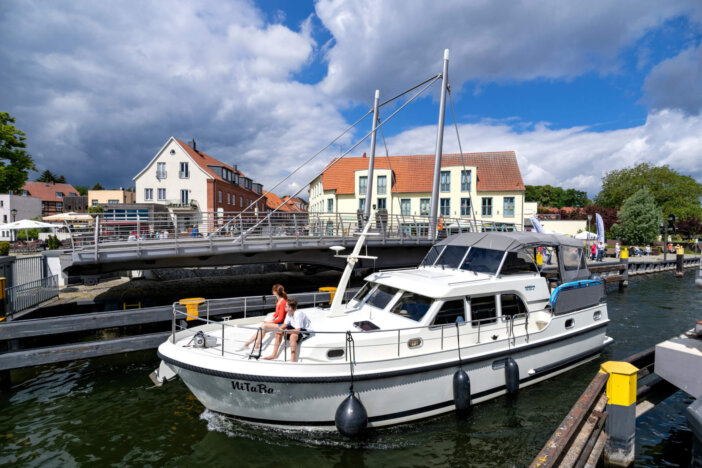
Houseboats and yachts are two distinct forms of living on water. They differ in design, mobility, cost, and accessibility. Here are the seven key differences to consider when choosing between them.
Disclosure: As an Amazon Associate, this site earns from qualifying purchases. Thank you!
1. Design and Mobility
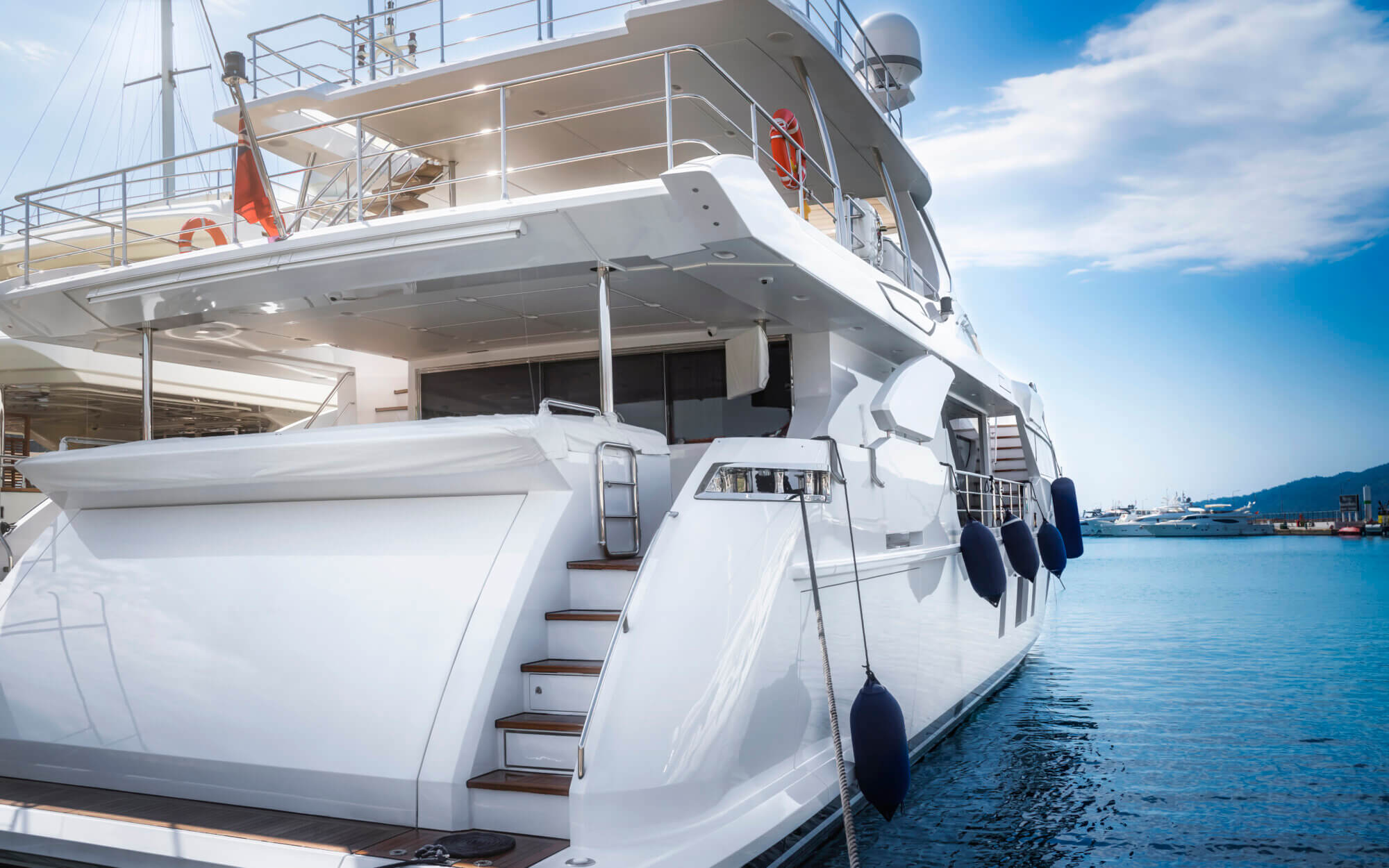
At first glance, the primary difference between a houseboat and a yacht is their design and purpose. A yacht is a vessel primarily designed for pleasure cruising, often associated with luxury and speed, making it ideal for those desiring an adventurous marine lifestyle.
On the other hand, a houseboat is more akin to a stationary home on the water, designed for comfort and extended stays at a fixed location, perfect for those seeking tranquility and stability.
Hey hey – real quick! Don’t forget to subscribe to get our best content 🙂
Type your email…
When it comes to mobility, yachts have the upper hand. They are built for high-speed travel across open waters, allowing you to explore various ports of call.
In contrast, houseboats are typically moored at a specific location and aren’t meant for long-distance travel. However, some houseboats can navigate short distances within calm waters, such as lakes and rivers.
2. Amenities and Comfort

Both houseboats and yachts can be equipped with luxurious amenities. However, the type and extent of these amenities largely depend on the size and design of the vessel.
Yachts, particularly larger ones, can feature multiple bedrooms, full-size kitchens, spacious living areas, and even extravagant extras like Jacuzzis and home theaters. They are designed to provide comfort while maximizing space efficiency.
Houseboats, on the other hand, prioritize residential comfort over mobility. As a result, they often offer more living space . They can be equipped with amenities similar to those found in traditional homes, including larger kitchens, full-size bathrooms, and expansive living areas.
Some houseboats also feature outdoor spaces, such as decks and patios, for residents to enjoy their aquatic surroundings.
3. Ownership and Maintenance
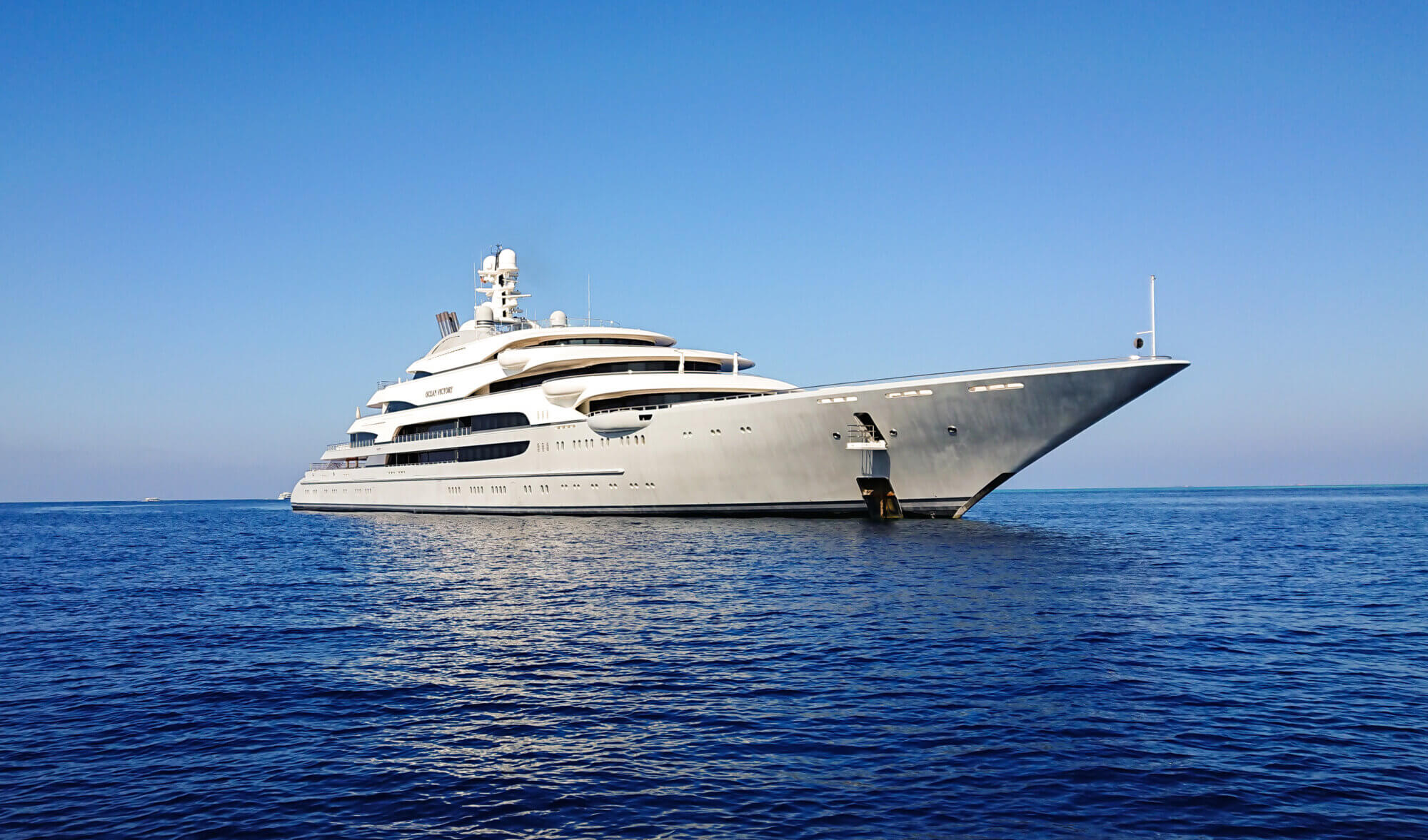
Ownership of a yacht or a houseboat comes with its own set of responsibilities and costs. Yachts, due to their complex designs and high-end features, typically require more maintenance.
This can include regular engine servicing, hull cleaning, and upkeep of onboard systems. Furthermore, yachts depreciate over time, which can impact their resale value.
Houseboat ownership, while seemingly simpler, has its own unique challenges. These floating homes need regular maintenance to prevent water damage and corrosion.
Additionally, owners must pay docking or mooring fees , unless they own the water lot where the houseboat is moored. Nonetheless, houseboats tend to depreciate at a slower rate than yachts, making them a potentially better investment in the long run.
4. Travel and Exploration
The allure of a yacht lies in its promise of travel and exploration. With the right yacht, you can cruise across oceans, visit exotic locations, and enjoy the thrill of navigating open waters.
Moreover, yachts offer a certain level of prestige and social status, making them popular among the affluent.
On the other hand, houseboats offer a different kind of adventure – the chance to live in harmony with nature, surrounded by serene waters.
While not designed for ocean cruising, houseboats are perfect for those who prefer a quiet, stable living environment with the unique experience of being on the water. They offer an escape from the hustle and bustle of city life without sacrificing the comforts of home.
5. Community and Lifestyle

Yacht and houseboat ownership also differ in terms of community and lifestyle. Yacht owners often enjoy a vibrant social scene, with opportunities to participate in yacht club activities, regattas, and exclusive events. The yachting lifestyle is often associated with luxury, adventure, and social prestige.
The houseboat community, meanwhile, tends to be more laid-back and close-knit. Living in a houseboat community often means knowing your neighbors and participating in community events.
This lifestyle appeals to those seeking peace, tranquility, and a strong sense of community on the water.
6. Cost and Accessibility
The cost of owning a yacht or a houseboat can vary significantly. Yachts are generally more expensive due to their design, construction, and amenities.
The cost of yacht ownership also includes maintenance, insurance, docking fees, and fuel costs. Despite these expenses, yachts can be chartered out when not in use, providing a potential source of income.
Houseboats, on the other hand, are often more affordable. While they have maintenance and docking costs, these are typically lower than those associated with yachts.
Houseboats also offer greater accessibility to the liveaboard lifestyle, making them a popular choice among retirees and those seeking alternative housing options.
Plus, some houseboat communities provide shared amenities like utility hookups, laundry facilities, and community centers, further enhancing their appeal.
7. Purpose and Usage
The purpose and usage of houseboats and yachts differ greatly. As a pleasure vessel, a yacht is ideal for those who enjoy sailing and sea travel. It offers the excitement of exploring new locations and the thrill of mastering marine navigation.
In contrast, a houseboat serves as a floating home, providing a unique living experience on the water. It’s best suited to those who enjoy a peaceful, stable living environment with the added charm of life on the water.
At what point does a boat become a yacht?
A boat becomes a yacht when it reaches a certain size, usually around 10 meters (33 feet) in length, and is used for pleasure or sport. The term ‘yacht’ also implies a certain level of luxury and comfort, as well as the ability to undertake longer, more adventurous voyages.
What is the difference between a boat and a houseboat?
While both are types of watercraft, a boat and a houseboat serve different purposes. A boat is a general term that refers to various vessels used for transportation, fishing, sports, or leisure activities.
A houseboat, however, is specifically designed as a dwelling with residential amenities and tends to remain stationary or travel short distances within calm waters.
Is a houseboat seaworthy?
Most houseboats are not designed to be seaworthy in the same way as yachts or other ocean-going vessels. They are intended for use on calm bodies of water such as rivers, lakes, and protected coastal areas.
However, some houseboats are built with more robust designs and materials, allowing them to handle rougher conditions. It is crucial to understand the capabilities and limitations of your houseboat before venturing out into open waters.
What makes a boat become a yacht?
A variety of factors can turn a boat into a yacht. These include its size, purpose, design, construction, and the level of luxury it offers. A yacht typically exceeds 10 meters in length and is designed for pleasure or sport.
It often features advanced navigation systems, high-quality construction materials, luxurious amenities, and sophisticated design elements that set it apart from other boats.
Whether you lean towards the adventurous allure of a yacht or the tranquil charm of a houseboat, what matters most is finding a vessel that fits your lifestyle, preferences, and budget.
Both offer unique ways to experience life on the water, each with its own set of benefits and challenges. So weigh your options, consider your priorities, and make the choice that will bring you the most joy and satisfaction.
Similar Posts

4+ Best Portable Grills for RV


DIY RV Skirting for Winter for Less Than $100

7 RV Table Ideas: Maximize Space in Your Small RV

7 Low Cost Travel Trailers: Budget-Friendly RVing Options

10 Budget-Friendly Closet Organization Ideas & Tips
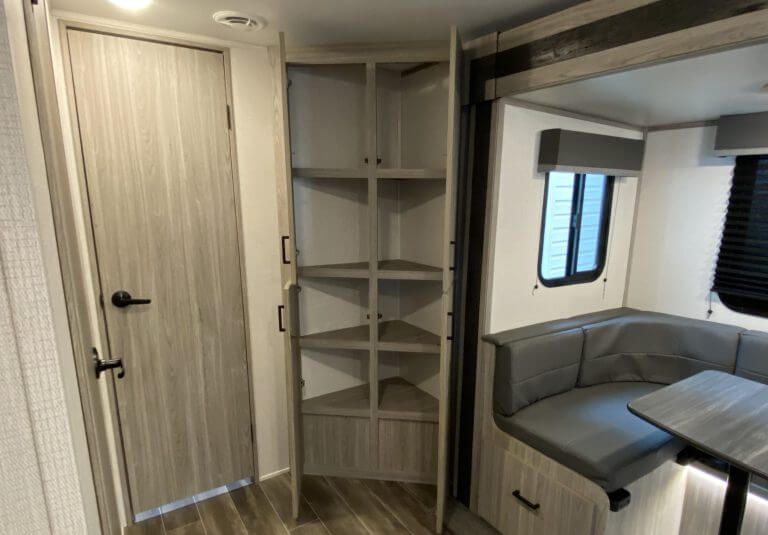
8 Top RV Accordion Door Alternatives for Stylish Privacy
Discover more from habitatista.
Subscribe now to keep reading and get access to the full archive.
Continue reading
- Testimonials
- Photo Gallery
- Window Replacement Parts

Which is Better: Houseboat or Yacht?
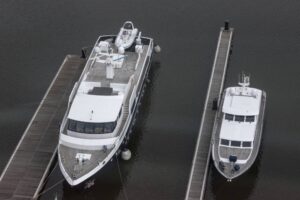
Houseboats are more affordable than yachts. One reason is that they are easier to maintain and are not sailed frequently. A yacht is more expensive because of its commercial use. Plus, the maintenance on a yacht is more tedious due to its high-class build and luxurious features aboard.
Yachts are usually priced around $300,000 to one million dollars, whereas you can buy a houseboat for as low as $15,000.
Size and Appearance
One major difference between the two is in appearance. Houseboats usually look like houses floating in the water, while yachts look like small cruise ships. Yachts are faster and more appropriate for sailing because of their planing hulls. On the other hand, houseboats only have flat hulls that’s why they’re mostly stationary.
Both are big enough to live in, but typical yachts are more cramped on the inside than houseboats, which is why they’re used mostly for recreation.
Purpose and Intended Use
Yachts are more luxury boats or non-recreational vessels. They are typically known for their speed, beauty, and other luxurious features. Plus, they are more famous for formal events, parties, and oceanic relaxation.
Houseboats are vessels with basic features that are only needed for comfortable day-to-day living. Because of their flat hulls, houseboats don’t move as fast in the water and might require more fuel to go from one place to another. This is why most houseboats are stationed permanently in marinas. A houseboat can accommodate one or more families depending on the vessel size. If you ask around in areas with houseboats, you’ll find out that some families have lived in their houseboats for generations.
Still, houseboats are also great for commercial use. After all, they were originally designed for that. If you don’t plan to live in a houseboat, they can make great restaurants or cafes in the marina. But for commercial use, yachts are the better investment. You can host parties or events, and with their mobility, you can take your business anywhere.
Houseboats typically have a much larger living space than yachts . They feature amenities that are great for living, like bedrooms, an indoor kitchen, and bathrooms. In marinas, other houseboat owners create a sort of tight-knit group with each other, so if you plan to live in one, expect friendly neighbors to socialize with.
A yacht is too big for one person, financially and space-wise. Plus, yachts won’t be able to provide enough space for a family. So houseboats are more practical if you’re planning to live in such a vessel. However, expect to invest in insurance eventually to cover for damages or break-ins that may happen in your houseboat.
Maintenance
Both houseboats and yachts experience wear and tear that requires routine maintenance to function smoothly. When it comes to houseboat maintenance, one of the essentials that owners can do is make sure that their houseboat sits on a good foundation. House barges are especially susceptible to damage from leaks in the hull. As water seeps into the boat, wood swells, and metal corrodes.
Houseboats generally last longer because they are not made to travel fast or far or need expensive maintenance as most yachts do. Since houseboats are much cheaper to buy, houseboat owners will also save money on houseboat upkeep. Yacht maintenance can cost up to $10,000 a month, while houseboat owners only have to pay for houseboat slip at the marina and fuel.
If you want to give a houseboat a more homey look, it may require a lot of renovations like new flooring, putting up drywall, and setting up bathrooms. Plus, they typically need electric and water supply and sewage. Yachts, on the other hand, are already built with those.
In retrospect, either houseboat or yacht will have the same maintenance cost. Yachts may cost more initially, but they require less upkeep in the long run because you won’t sail your yacht unless needed. On the other hand, houseboats may cost less but may require unexpected costs like foundation repairs.
So, a houseboat or yacht? The answer will depend on your specific needs and preference. It will also depend on how much money and time you will spend on the vessel. Both are excellent investments with each having its uniqueness that you’ll love.
Finally, whether you go with a houseboat or a yacht, you’ll be needing quality marine windows for privacy and safety. Marine windows are durable and intended to withstand strong wind and water splash. If you notice any crack in your boat windows, look for the best replacement in the market today.
Motion Windows of Peninsula Glass offers high-quality marine glass windows that are customizable to fit any size of boat window.
So if you need a new marine glass window for your houseboat or yacht, call Motion Windows and get a free quotation !
Author: Hai N |
Recent Posts
- Navigating the Seas with Optimal Boat Windows
- Clear Vinyl for Windows: What do you need to know?
- How to Keep Boat Windows from Fogging Up?
- What should you do to avoid colliding with another boat?
- Boat Windows Tips: How to Remove Scratches from Glass Windows
Boat Reviews
- Boats Specs
- Marine Pros
- Boat Insurance
- Boat Warranties
- Boat Transport
- Boat Towing
- Marine Forecasts

Your Ultimate Boating Resource

What is the difference between a houseboat and a yacht?
When it comes to boating, there are a wide range of options to choose from. Two popular choices are houseboats and yachts. While they may seem similar at first glance, there are some key differences between the two.
Houseboats are essentially floating homes. They are designed to be lived in for extended periods of time, and often have many of the same features you would find in a traditional home. They typically have multiple bedrooms, bathrooms, and living spaces, as well as full kitchens and even outdoor decks. Houseboats can be used for everything from weekend getaways to full-time living.
Yachts, on the other hand, are designed primarily for leisure and pleasure. They are typically smaller than houseboats and have fewer amenities geared towards long-term living. However, they often feature luxurious accommodations and state-of-the-art technology, making them the perfect choice for those who want to cruise in style. Yachts are also popular for hosting events or entertaining guests.
In terms of cost, houseboats and yachts can vary widely. Houseboats can start at around $75,000, but can easily run into the millions of dollars for high-end models. Yachts can be even more expensive, with prices ranging from $100,000 for smaller models up to several hundred million dollars for the most extravagant vessels.
Despite their differences, both houseboats and yachts offer a unique way to enjoy the water. Whether you’re looking for a comfortable home away from home or a luxurious escape, there’s a boating option that’s right for you.
Related Questions
What type of wood is used for pier pilings, what is the difference between a dock and a floating pier, what is the proper technique for pulling a beginner wakeboarder, what does ‘no wake’ mean on a lake, what is the difference between wash and wake, is wakesurfing possible in the sea, why don’t wooden piers rot, what size wakeboard is needed, how to achieve more pop on a wakeboard, does wake surfing translate to ocean surfing, latest posts, overview of the 2024 sea-doo rxp-x 325, overview of the 2024 parker offshore 2900 cc, what your boat’s beam is and why it matters, power cats of 2024: ultimate guide to the top power catamarans this year, don't miss, our newsletter.
Get the latest boating tips, fishing resources and featured products in your email from BoatingWorld.com!
Navigating the Heat: 10 Safety Tips for a Safe Boat Ride in the Summer Heat
Highs, lows, and tidal know-how: a deep dive into ocean currents, 10 essential tips for fishing near private property, the benefits of using a drift sock: guidance for anglers, lure fishing: secrets for imitating live bait and attracting fish, explore the untapped depths of america’s best bass fishing spots, outboard motor maintenance: tips for keeping your engine in top shape, the essential boat tool kit: tools every boater needs, diy boat building: 8 tips and tricks for building your own vessel, the art of miniature maritime craftsmanship: ship in a bottle, antifouling paints: a guide to keeping your boat shipshape, beginner’s guide to standup paddle boarding: tips and techniques, boating for fitness: how to stay active on the water, kayak safety: how to stay safe on the water, anchoring in a kayak or canoe: how to secure your small boat, overview of the 2024 yamaha 252sd, overview of the 2024 tiara yachts 48 le, overview of the 2024 bass cat jaguar sts, 2024 pursuit os 445: an overview, 2024 aquila 47 molokai review, 2024 sea-doo switch 13 sport review, gear reviews, megabass oneten max lbo jerkbait review, fortress anchors fx-7 anchoring system review, fortress anchors fx-11 anchoring system review, fortress anchors commando anchor kit review, fortress anchors aluminum anchors review, stay in touch.
To be updated with all the latest news, offers and special announcements.
- Privacy Policy
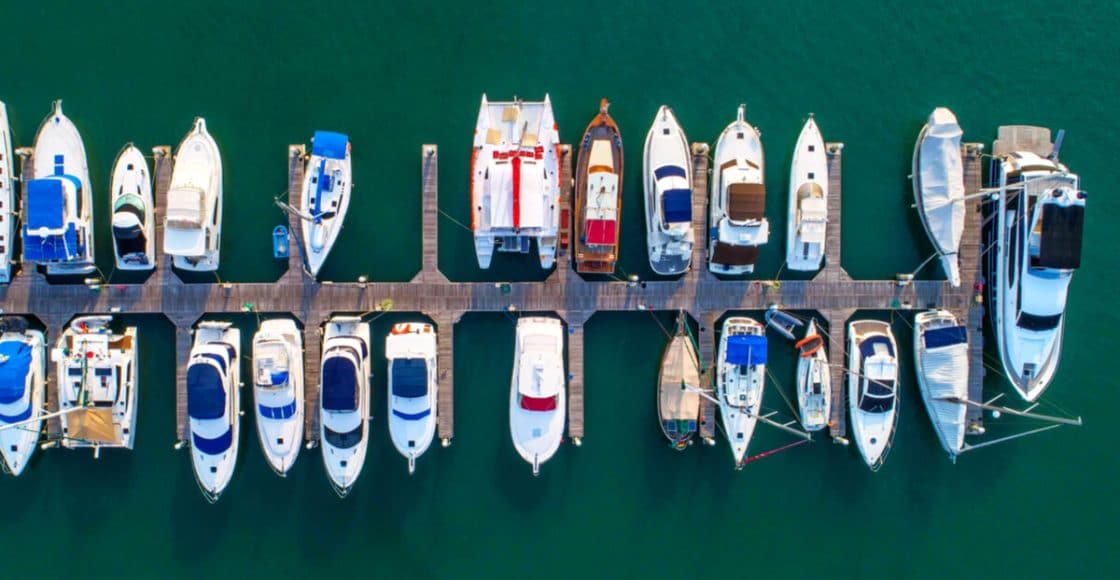
Yachts vs. Boats: What are the Differences?

Table of Contents
Last Updated on April 13, 2022 by Boatsetter Team
Many people use the words “boat” and “yacht” interchangeably, and some lean on the latter to make their ride sound more impressive. But what are the key differences between boats and yachts?
First, let’s look at some broad definitions of a boat, a yacht, and other related vessels.
- “Boat” can refer to just about any kind of vessel— towboat , fishing boat , center console , houseboat , and so on.
- “Dinghy” designates a small boat with a human or wind means of propulsion including a rowing dinghy or sailing dinghy. It also refers to a tender to a bigger boat or yacht.
- “Ship” is a large commercial boat, often used for distance travel and transport of goods or passengers – cruise ship, container ship, etc.
- “Yacht” is typically a larger boat with luxury amenities used as a recreational vessel— motor yacht , sailing yacht .
- “Superyacht” is a large yacht and is often also called a mega yacht . The delineation used to be at 80-feet but again, with today’s size creep, anything under 100 feet would just simply be called a yacht.
So, yacht or boat? Let’s dive deeper into the elements that differentiate a boat from a yacht.
Own a Boat or a Yacht? Learn How to Offset the Cost of Ownership by Listing on Boatsetter
Size of the Vessel
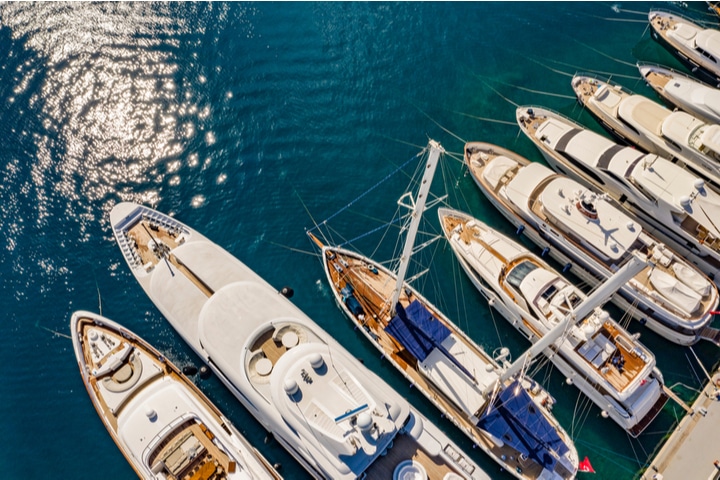
Some place a hard line at 35 feet. Below that, you have a boat and above, it’s a yacht. However, that’s an artificial differentiator.
Just 30 years ago, a 30-foot boat was considered large and could have been a yacht but as recreational boats grow longer, the term yacht has been pushed up the scale.
That said, a well-kept 40-foot boat designed for recreation can technically still be called a yacht (although larger vessels are likely to cost more, price isn’t a good indicator of yacht status primarily because it fluctuates with brand, age, and amenities).
Check out local yacht rentals near you to understand how size plays a difference.
What it’s Used For
A yacht is a vessel designed for recreational purposes. It generally operates on open waters (rather than small lakes or rivers) and has accommodations for overnight guests.
A cruise ship, on the other hand, accommodates a large number of passengers in a commercial setting whereas a yacht carries a smaller number (of paying or non-paying) passengers for private recreation.
Onboard Technology
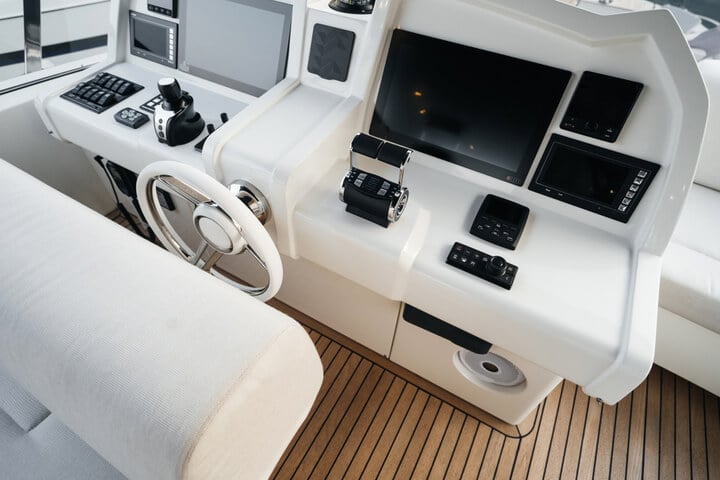
Advanced technology for navigation, communications, and system operation as well as redundant systems for safety can be found on a yacht that is likely to venture farther.
Again, there are caveats because today’s towboats that are fun day boats also feature technology such as GPS and digital switching that integrates many electrical and electronic features.
Propulsion Types
This is a tricky one. “Yacht” comes from the Dutch word “jaght” which referred to a sailing vessel that was used by the navy to capture pirate ships and later for recreation by the affluent.
Today, a yacht can be a large sailing vessel or a motor yacht. All larger yachts will have a motor for propulsion whether they have sails or not. Sailboats by design have smaller motors so trying to put a horsepower minimum on yacht propulsion is simply inaccurate.
Some define a yacht as having multiple crews to operate the vessel and tend to passengers or guests. The larger the yacht, the more crew will be required to navigate, maintain and service the vessel. That said, a couple who owns a 50-footer can call their boat a yacht although it’s owner-operated.
Luxury and Amenities
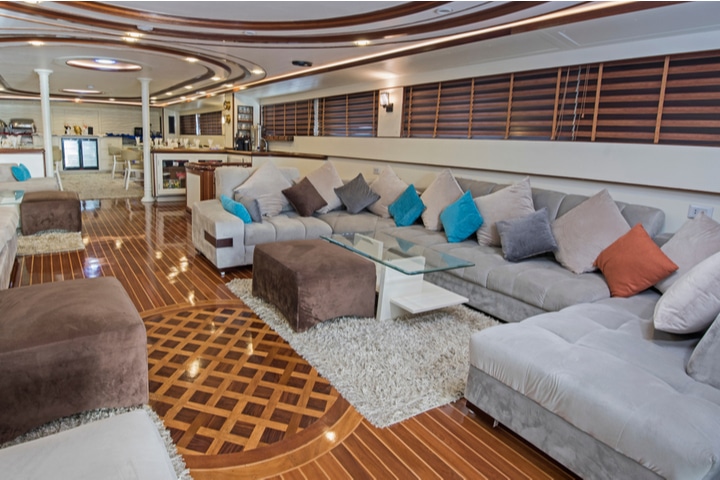
This is perhaps the best measure of a yacht. If the vessel offers accommodations, a galley , a head , and is luxurious in its presentation, it’s most likely a yacht.
That said, there are lots of center console fishing boats and towboats that are pretty nicely equipped these days and they wouldn’t be called a yacht.
All yachts are boats, but not all boats are yachts—and the lines are blurry. The word yacht elicits images of posh seafaring experiences while a boat evokes ideas of fun and perhaps work. Do some research to learn what size and type of boat or yacht is best for you .
To a degree, the point at which a boat becomes a yacht is in the ear of the beholder but if you focus on size, amenities, and the type of use, you’ll be able to discern the difference. Then all that remains is to find a way to spend time and have fun on any kind of vessel.
Browse All Available Boat & Yacht Rentals Across the Globe

Zuzana Prochazka is an award-winning freelance journalist and photographer with regular contributions to more than a dozen sailing and powerboating magazines and online publications including Southern Boating, SEA, Latitudes & Attitudes and SAIL. She is SAIL magazines Charter Editor and the Executive Director of Boating Writers International. Zuzana serves as judge for SAIL’s Best Boats awards and for Europe’s Best of Boats in Berlin.
A USCG 100 Ton Master, Zuzana founded and manages a flotilla charter organization called Zescapes that takes guests adventure sailing at destinations worldwide.
Zuzana has lived in Europe, Africa and the United States and has traveled extensively in South America, the islands of the South Pacific and Mexico.
Browse by experience

Explore articles

Sarasota Boating Guide
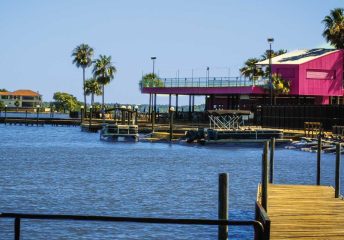
Things to Do at Lake Conroe

And the host of the year award goes to...you!

Trending Now: The Latest in Watersports!

IMAGES
COMMENTS
In this houseboat vs. yacht comparison guide, we will take a closer look at how these two water vessels compare. We will explore their designs, the different types available, their floor plans, and their pricing.
People often assume that yacht houseboats are essentially the same things. I mean, they both float, right? While they do share some features, they are two vastly different types of boats. A houseboat is a floating house that is typically attached to a port and used as a permanent residence.
7 Differences Between Houseboat and Yacht: Choose Your Oasis. Houseboats and yachts differ in design, mobility, cost, and purpose. Yachts offer luxury, speed, and travel, while houseboats prioritize comfort, stability, and a home-like feel on calm waters.
What is the Difference Between a Yacht vs a House Boat? House boats differ in their design, purpose, and amenities. A yacht is a vessel primarily designed for pleasure cruising, often associated with luxury. A house boat is more akin to a stationary home on water.
This exploration will clarify what sets a yacht apart from the great many categories and varieties of boats on the market, which includes a diverse array of watercraft, making the distinction between a yacht and boat clearer.
Dive into the key differences between houseboats and yachts. Learn about their cost, size, purpose, livability, and maintenance.
From spacious interiors and modern amenities to reliable performance and innovative designs, we cover everything you need to know. Dive into our guide today and let us help you embark on a new chapter of waterfront living. Start planning your dream houseboat adventure with confidence and style!
Houseboats can be used for everything from weekend getaways to full-time living. Yachts, on the other hand, are designed primarily for leisure and pleasure. They are typically smaller than houseboats and have fewer amenities geared towards long-term living.
But what sets them apart? In this comprehensive guide, we’ll delve into the key differences in the yacht vs boat topic, covering essential aspects such as definitions, size and design, purpose and usage, cost and maintenance, and performance and capabilities.
But what are the key differences between boats and yachts? First, let’s look at some broad definitions of a boat, a yacht, and other related vessels. “Boat” can refer to just about any kind of vessel—towboat, fishing boat, center console, houseboat, and so on.